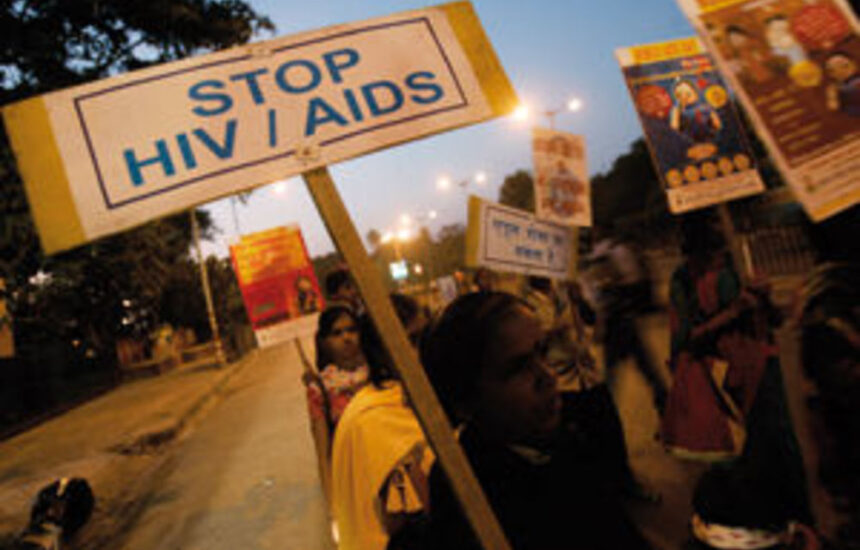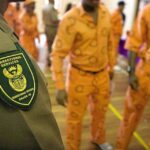The recent near-collapse of US-funded HIV projects in South Africa has led to a crisis in the country’s healthcare system. The President’s Emergency Plan for Aids Relief (Pepfar) previously funded many nonprofits to assist provincial health departments in HIV testing and treatment. However, after President Donald Trump froze all foreign aid, many clinics run by health workers funded by Pepfar were forced to close due to lack of funding.
In response to this crisis, the health department has implemented a contingency plan to ensure that HIV patients continue to receive the medication they need. One of the key components of this plan is to offer state HIV patients who qualify a six-month supply of antiretroviral (ARVs) pills at a time. This means that patients only need to visit clinics or community pick-up points twice a year to collect their medication, reducing the workload of health workers.
To qualify for a six-month supply of ARVs, patients must have a suppressed viral load for two consecutive periods. This typically requires patients to have been on ARVs for at least two years. Patients who already receive a three-month supply of ARVs may be considered for a six-month supply, provided that the clinic has enough stock of the necessary medication.
In addition to providing a six-month supply of ARVs, the health department’s plan includes provisions for ARV pick-ups at community points such as churches, mosques, private pharmacies, or adherence clubs. Patients who receive their treatment from these community pick-up points will be allowed a 28-day grace period to fetch their medication. As long as they are not more than 28 days late, they will still qualify for an automatic script renewal without having to return to a health facility.
Despite the challenges posed by the withdrawal of Pepfar funding, the health department remains committed to ensuring that HIV patients continue to receive the care they need. While the sudden withdrawal of funding may slow down progress, the health department is working to increase the number of patients receiving medication outside of health facilities. The goal is to ensure that all HIV patients have access to life-saving treatment, regardless of the funding source. The freeze on funding from Pepfar, a US government programme that provides support for HIV programmes around the world, has had a significant impact on preventive treatment efforts in South Africa. While the health department pays for the salaries of the majority of health workers involved in its HIV programmes, a small percentage are funded through Pepfar, with nonprofits covering their wages.
In the case of preventive treatment, such as pre-exposure prophylaxis (PrEP), the freeze on funding has made it more challenging to provide daily anti-HIV pills to high-risk groups such as teen girls, sex workers, gay and bisexual men, and transgender women. Pepfar had previously supported initiatives like mobile clinics and drop-in centers that catered to the specific needs of these groups, but with the freeze on funding, these services have been impacted.
The South African health department aims to have 700,000 new HIV-negative individuals use PrEP, with Pepfar supporting approximately 520,000 of these initiations. However, the provincial health departments are responsible for funding the medication, which means that while Pepfar may have covered the salaries of some health workers, the medicine itself may become harder to access.
Furthermore, the freeze on funding has led to the closure of research sites testing different forms of PrEP, including a monthly vaginal ring and a two-monthly injection. These closures have been described as unethical and a waste of resources by HIV researcher Francois Venter.
In response to the freeze on funding, court cases have been filed against the Trump administration, with a recent ruling instructing the administration to temporarily unfreeze all foreign assistance funding, including Pepfar funds. However, the practical impact of this ruling remains limited as projects are still waiting for formal approval to resume their work.
Despite some Pepfar projects being able to access their funds and restart their activities, challenges remain due to the absence of clear leadership from both the national health department and Pepfar. Implementing partners have been left to navigate an uncertain landscape with little direction, leading to confusion and difficulties in answering questions from provincial health officials.
One organisation, Right to Care, has been allowed to restart their voluntary medical male circumcision programme in all 27 Pepfar-supported districts and has issued guidance to their workers on how to proceed. However, workers have been advised to keep a low profile and avoid speaking out to avoid jeopardizing further funding. The internal struggle of staying silent in the face of injustice is a battle that many of us face. In a recent situation, my gut told me to speak out, but I chose to remain silent in order to protect our staff and partners. However, that decision has left me grappling with feelings of complicity and shame.
As a humanitarian, our primary goal is to serve and support the communities in need. But can we truly call ourselves humanitarians if we prioritize our own safety and comfort over standing in solidarity with those we serve? This question haunts me as I reflect on my choice to remain silent.
The weight of my silence feels heavy, as if I am carrying the burden of complicity on my shoulders. I know that speaking out may have put our staff and partners at risk, but I can’t shake the feeling that I failed to uphold the values of compassion and justice that are at the core of humanitarian work.
The internal conflict I am experiencing serves as a reminder that silence is not always the answer. In moments of uncertainty and fear, it is crucial to remember that our voices have power and can be a catalyst for change. By speaking out against injustice, we can amplify the voices of those who are marginalized and oppressed.
Moving forward, I am committed to breaking free from the chains of silence and standing up for what is right, even if it means facing discomfort and uncertainty. I refuse to let fear dictate my actions and will strive to be a true advocate for those in need.
This experience has taught me a valuable lesson about the importance of speaking out and standing up for justice, even in the face of adversity. As humanitarians, it is our duty to use our voices to create positive change and advocate for those who cannot speak for themselves. Let us all commit to breaking the cycle of silence and standing in solidarity with the communities we serve.








